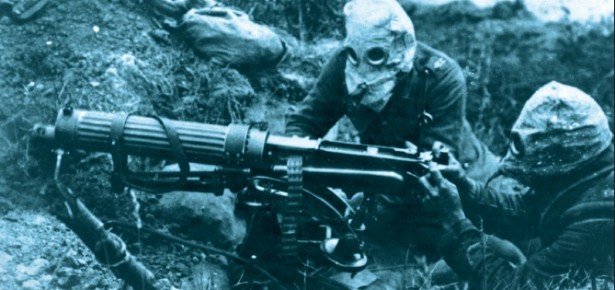
It has been 100 years since the Great War, as it was called at the time, scorched the earth and psyches of the West, transforming our lives and world forever. As George Kennan remarked, the First World War was “the great seminal catastrophe” of the twentieth century. The war destroyed empires and it led to political and social upheavals across Europe, the emergence of new national states, and a redrawing of the map of the Continent. It set the stage for the rise of Hitler and the Second World War and, indirectly, for the Cold War. It also triggered a significant shift in attitudes toward war, from one in which war was seen as acceptable and natural to one in which war was seen as abhorrent, if not irrational, and to be avoided. In military terms, the First World War also marked a shift away from the limited wars of the mid-nineteenth century to total war with extensive social mobilization. The experiences of the war also produced a substantial body of work in literature and film that continues to shape images of war generations later. The impact of the war was all the greater because it became a political and emotional issue after the inclusion of the war guilt clause in the Versailles Treaty.
Historians have now debated the origins of the First World War for a century. These debates have been motivated in part by the complexity of the processes leading to the war, and by the fact that the war provides some evidence to support a large number of different interpretations. As Paul Kennedy remarked, “the First World War offers so much data that conclusions
can be drawn from it to suit any a priori hypothesis which contemporary strategists wish to advance.” Those clinging to a version of the “slide to war” hypothesis have been further motivated by the gap between what they regard as the relatively limited aims of most of the participants, and the enormity of the destruction of the war and of its political and social consequences. Many others have been motivated by the politicized nature of interpretations of the war, affecting conceptions of national identity and having implications for government policies years later.
The First World War has also captured the imagination of international relations (IR) scholars. The war has had a disproportionate impact on the development of numerous theories of international conflict, from theories of balance of power, power transitions, alliances, economic interdependence, and offense–defense, to theories of scapegoating, rigid organizational
routines, and misperceptions. It is also a commonly used case to illustrate and test a wide range of theories of international conflict. The First World War remains the case to which nearly every IR conflict theorist is drawn.
This should not be surprising. Historiographical debates about the origins of the First World War parallel many theoretical debates that are central to the international relations field: structure and agency; the relative importance of international and domestic sources of causation; the causal role of individual personalities and belief systems; the rationality and coherence of the decision-making process; the dynamics of the security dilemma; the role of international norms and institutions; and the impact of strategic and societal culture, to name a few. The war is also intriguing because it started with a crisis that most observers at the time thought would be managed successfully. Within a few days it spiraled out of control and diffused rapidly from a local war to a continental war, and then to a world war that eventually engulfed all the major states in every region of the globe. Seemingly rational decisions led to irrational outcomes. The processes leading to war were characterized by extraordinary causal complexity involving an intricate interplay of variables from all levels of analysis: structural pressures, dyadic rivalries, social upheaval, insecure regimes, bureaucratic intrigue, long-standing strategic cultures, idiosyncratic leaders, and decision-making under enormous uncertainty.
In addition, the First World War has left an extensive documentary record. After the new Bolshevik government attempted to discredit the tsarist regime by publishing its secret treaties, other governments, determined to demonstrate that they were not to blame for the war and had little to hide, published volumes of documents from their own archives. This has generated a vast literature reflecting different perspectives on a variety of events for all the countries involved, making this by far the most studied interstate war in history. The selective nature of the publication of these documents further politicized early debates about the origins of the war.
After nearly a hundred years, extensive research and debate about the outbreak of the Great War have resolved many questions. New questions have emerged, however, as historians have uncovered new documents and as political scientists have invoked new theories in an attempt to explain the war. Research in each discipline has also broadened its scope in recent years, from a primary focus on the outbreak of the war to heightened interest in the conduct of the war and the processes leading to its termination. The centennial of the war is generating a wave of new research, with new books, articles, and anthologies. What is distinctive about this volume is that it is the only one we know of that attempts to bring historians and international relations theorists together on a topic that has long been a central question in each discipline.
To read the full excerpt, click here.
Latest Comments
Have your say!